SS #85: Beyond restful learning
Scholé includes, but is also so much more than, restful learning. Once again, the Scholé Sisters return to the topic of figuring out what scholé really means and what it truly is.
How do we know if what we’re doing counts as scholé? That’s the question tackled in this episode.
Listen to the podcast:
TUNE IN:
Apple Podcasts | Spotify | Stitcher
Do you have true leisure time?
Today’s Hosts and Source
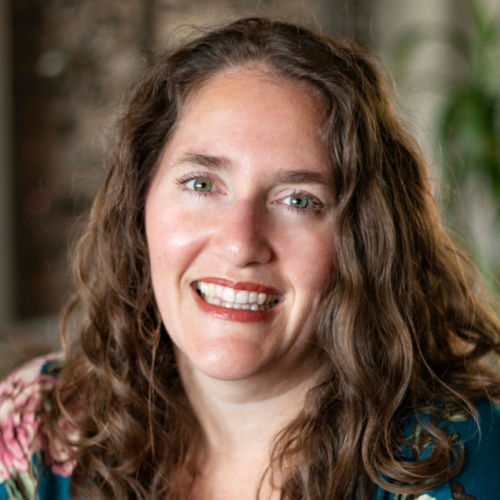
Brandy Vencel
Brandy homeschools her 3 kids left at home and finds leisure time while waiting in the car when acting as her kids’ chauffeur.

Mystie Winckler
Mystie homeschools 4 of her kids while her oldest, a senior, is at the local community college. Her favorite time of scholé is corporate worship.
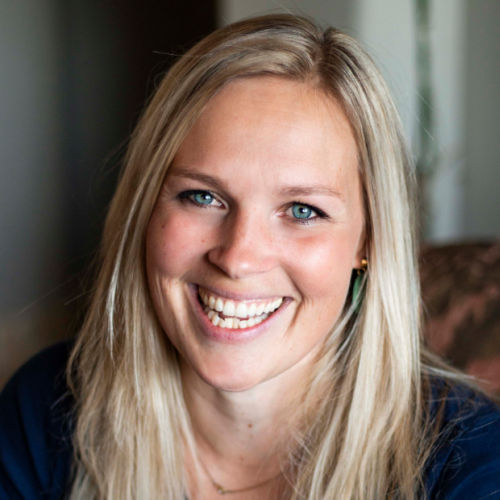
Abby Wahl
Abby homeschools her 5 kids and finds her best leisurely contemplation happens on daily long country walks.
Josef Pieper’s tiny little work Only the Lover Sings is perhaps a better summary and explanation of scholé than Leisure: The Basis of Culture.
Today’s conversation is drawn primarily from chapter 1, titled “Work, Spare Time, and Leisure.” In it he draws distinctions and conveys definitions of these different human modes of being.
“If podcasts had favorite authors, this podcast’s favorite author would be Josef Pieper.”
Brandy Vencel, episode #85
Scholé Every Day: What We’re Reading
1066: The Year of the Conquest, David Howarth
Abby found the writer of this short but meaty historical work unexpectedly funny. It’s history with snide remarks.
Martianus Capella and the Seven Liberal Arts, Martianus Capella
Full of elaborate allegorical gems, this work from the early medieval period was used as a textbook of the seven liberal arts for centuries. It was required reading for Mystie’s grad-level New St. Andrews class on the History of Classical Christian Education.
Rolf and the Viking Bow, Allen French
Brandy didn’t expect much from this family read-aloud, but has found it well written and thought-provoking historical fiction.
Work, Spare Time, and Leisure
Pieper makes the point in the first chapter that although you require spare time from work to have leisure, spare time is not automatically leisure time. It depends on how you use the time.
Leisure is a “longing for something other.” It is not entertainment or recreation or simple free time. Leisure is something that is good in itself. Work is a useful good, but scholé is to be done for direct and pure enjoyment rather than as a means to any other result.
Scholé is the apprehension of truth and contemplation of it.
Brandy Vencel, episode 85
Restful learning is contemplation
The distinction between work and rest is different than we might expect.
Defining words is hard but necessary work. Leisure and rest, in philosophical terms, is not kicking up our feet and taking it easy. It might even sometimes feel like it’s work because it does take effort to be leisure.
“If I have a soul, it is useful that I feed it.”
Brandy Vencel, episode #85
The real relationship between reading and scholé
All reading is not scholé, not a leisure experience. Likewise, there are many forms of scholé apart from reading.
Yet without an active, wide, and deep reading life, our minds will not be equipped with the thoughts and ideas to contemplate when we have leisure.
It is really when you make the connections between readings that you’re really “doing” scholé – apprehending truth.
It is after we read that we can experience [scholé].
Mystie Winckler, episode 85
Reading not only gives our minds the material we need before we’re able to contemplate, it also builds our attention and feeds proper loves. Thus, good reading fosters scholé in that it aids our attention, interest, and engagement with Sunday corporate worship.
Loafing is the opposite of leisure
We assume loafing and work are the opposite ends of the spectrum, but loafing is as far from leisure as it is from work. Restful learning – contemplation – does require effort.
Scholé is not an absence of work or leisure, but a contemplation or beholding of the truth. One possible definition of scholé from this chapter in fact is –
Contemplation is visual perception prompted by loving acceptance.
Only the Lover Sings
Scholé beyond restful learning
- Religious meditation
- Philosophical reflection
- Experiencing poetry while listening
- Creating art
- Perceiving the artists’ intention in a work of art
- Pondering human deeds
Activities like walking can be an avenue of scholé because they give us time to think, observe, and make connections.
It’s all about the conditions they are done under.
Those who only listen and observe, as long as the conditions are right, can touch in contemplation the core of all reality.
Only the Lover Sings, p. 24
The conditions of scholé
Pieper says it is less about what you’re doing and why and how you are doing it. Scholé is more about your attitude than your activity.
The first condition is an attitude of receptive openness and attentive silence. This is what happens after we read, or when we pause to commonplace or think about a line instead of trying to read as many words as possible in the time we have.
When we take walks without any digital input in our ears and eyes, we give ourselves space and time for contemplation and connection. Even time while chopping veggies, folding laundry, or hand work provides mentally quiet space where your mind can roam.
Scholé requires an interiority that is squelched by busyness and distraction and noise. It also takes time to get into scholé mode. You can’t just pick up a book and be there.
The second condition is the ability to celebrate a feast. A feast is a religious affirmation of the world as it actually exists. It lifts us up out of a complaining, critical mode with affirmation and gratitude. Expressing our enjoyment of the world in an out-of-the-normal way is a feast; it is scholé.
In a feast, we are “oblivious to life’s basic necessities” as we enjoy life’s transcendent meaning. Particularly as mom’s, life’s basic necessities – the always-running mental to-do list – do crowd out our ability to celebrate a feast. We need to practice calming down and putting aside our worries in order to be festive. We need to prepare not only our homes and food, but also ourselves to celebrate.
Finding more scholé than restful learning
We’re so comfortable in the work mode that we need to be intentional in our building of scholé.
- be lost in thought in a way that is not utilitarian
- reserve time for leisure – it won’t happen on its own often
- have an extended conversation with others about big ideas
- have an artistic hobby that has no useful aim
Beware believing that the only things of value to do or have are the useful things.
There are human activities that by their very nature lie beyond the standards of any five year plan.
Only the Lover Sings
Mentioned in the Episode
Listen to related episodes:
SS#160 – We wrote a book!
SS #148: De-Institutionalizing School (with Heather Olsson!!)
SS#142: Attention is a homeschool essential
SS #125 – Numbering the Days of Your Homeschool

Want to talk about the ideas presented here? The conversation is happening inside Sistership.
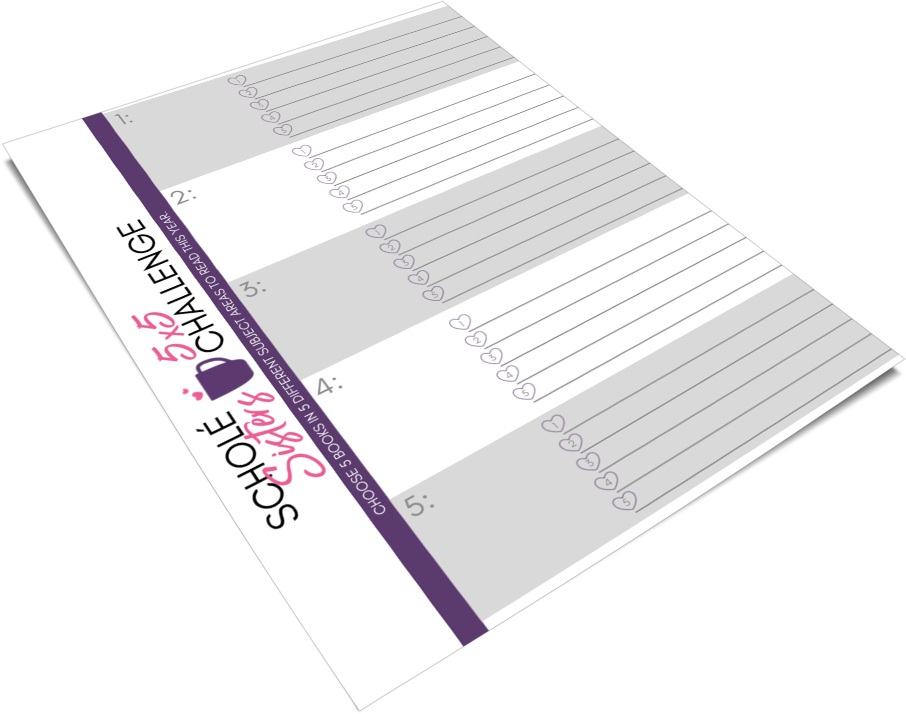

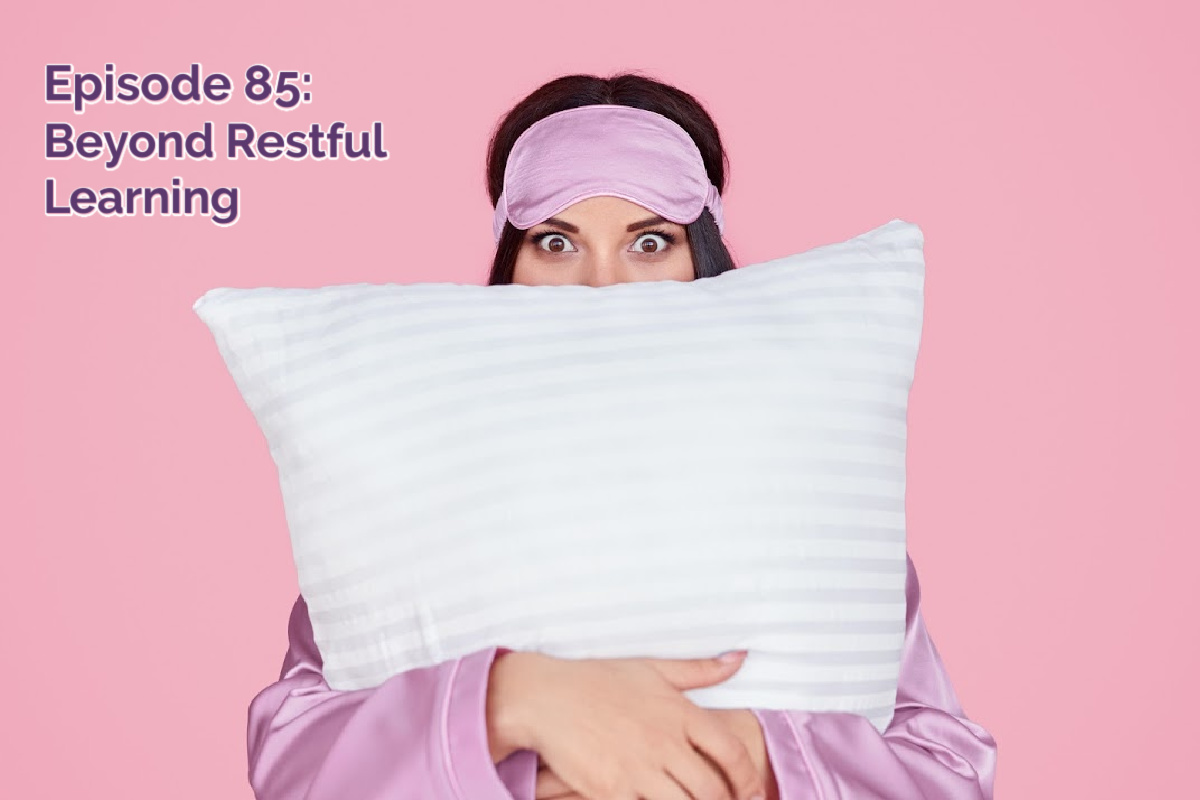
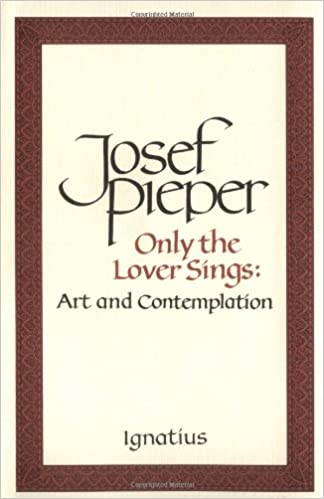

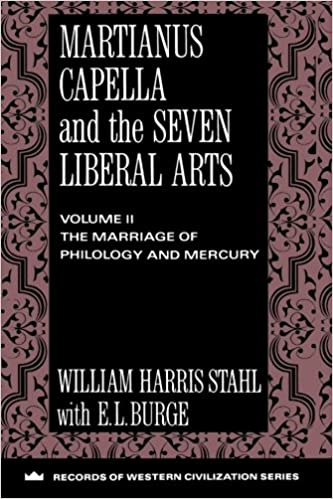
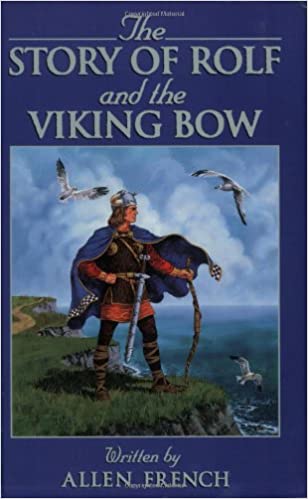
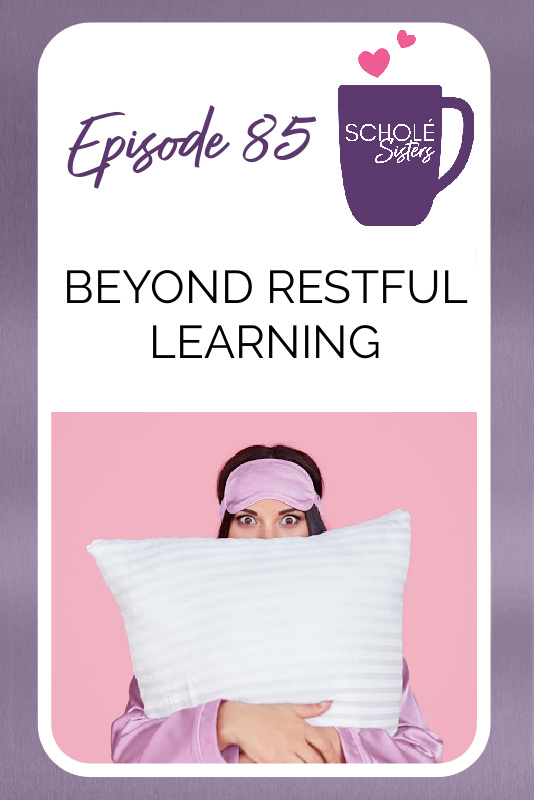

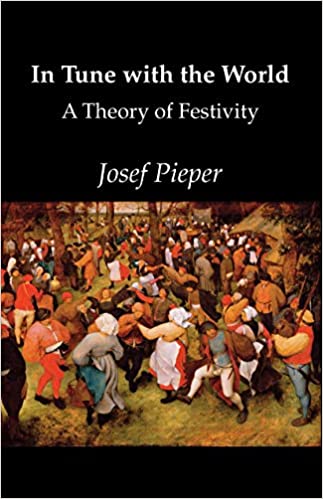
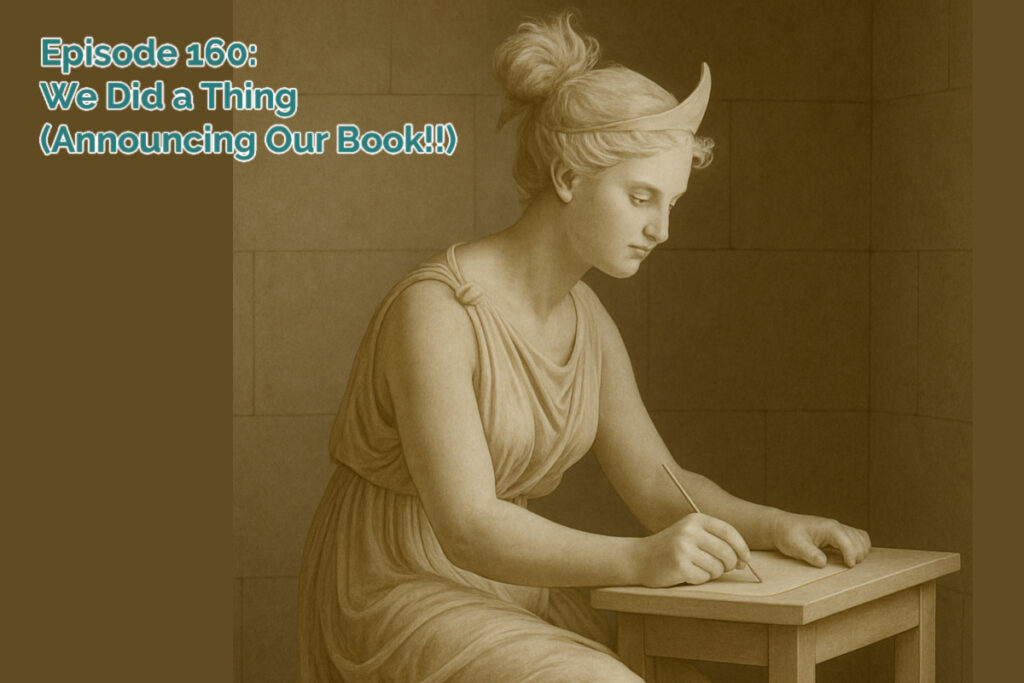


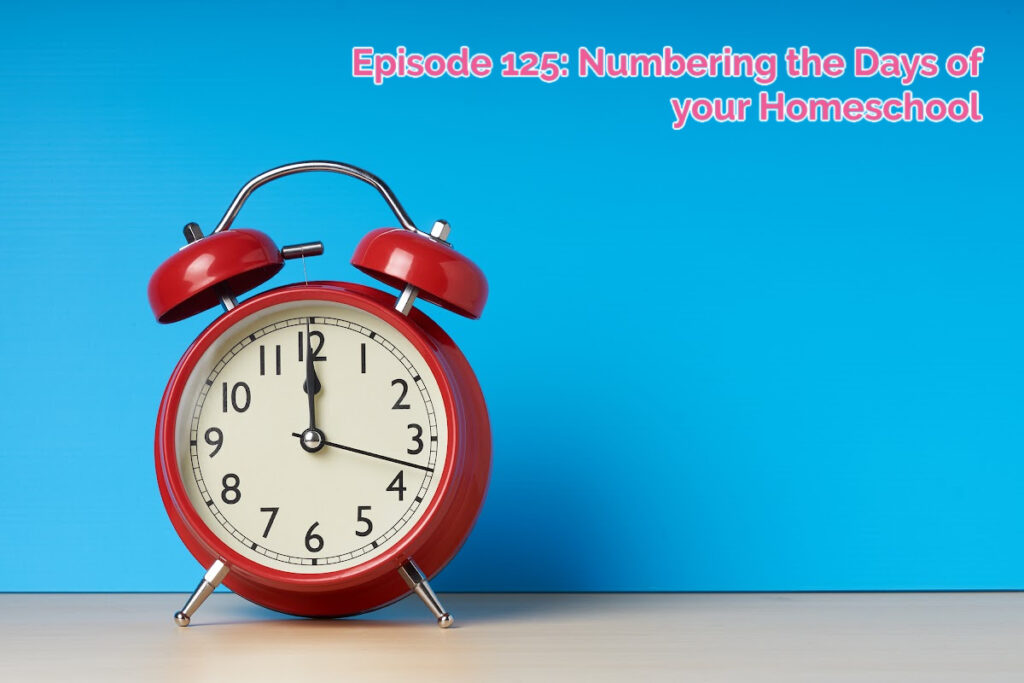

One Comment
Comments are closed.